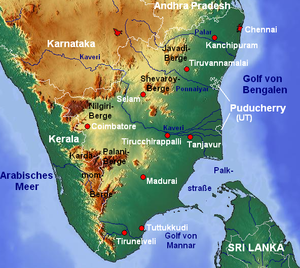
N.S. Venkataraman 9/5/2018
After several decades of disputes between Tamil Nadu and Karnataka on sharing of Cauvery water, Supreme Court has given a firm judgment that Cauvery Water Management Board should be set up and also fixed the share of Cauvery water between the states.
While the government of India has not contested the verdict of the Supreme Court on setting up Cauvery Water Management Board, it has not followed the timeline given by Supreme court for setting up the Cauvery Water Management Board.
While giving the verdict, Supreme Court itself could have laid the rules and guidelines for setting up the Cauvery Water Management Board and appointed members of the Board without leaving the task to Government of India. In the past, there were several cases where Supreme Court has appointed monitoring committees such as Environmental Monitoring Committee and also decided the guidelines and members of the Board.
If Supreme Court has done this, possibly Cauvery Water Management Board could have started functioning now.
The government of India has problems in setting up the Cauvery Water Management Board since Karnataka is severely opposing the idea and Tamil Nadu is vigorously supporting the idea. With Tamil Nadu having a population of around seven crore and Karnataka having a population of around six crore, the confrontation between the two states due to Government of India forming Cauvery Water Management Board could have led to violent clashes and undesirable consequences.
It appears that Government of India wants to call the leadership of the states involved and work out an amicable solution, keeping the verdict of the Supreme Court in mind, so that the Cauvery Water Management Board can have a smooth start.
Since the Karnataka state election has been announced and a new government is to be formed after the election in Karnataka, Government of India has to necessarily wait till the popular government is elected in Karnataka, so that meeting of the states can be taken up. The Government of India is justified in delaying the formation of Cauvery Water Management Board, till the election in Karnataka would be completed.
After the election in Karnataka, Modi government has to call the meeting of the states, try it’s best to work out a consensus and then form the Cauvery Water Management Board as per the Supreme Court verdict.
When there is an adequate monsoon, there is no dispute between the states in sharing water. The problem happens only when monsoon fails or is delayed. Such failure or delay of monsoon is likely to happen more frequently in the coming years due to global warming and consequent change of wind direction.
In such circumstances, while forming the Cauvery Water Management Board as per the supreme court verdict, Government of India should also help the states in conserving the water during monsoon and also generating a new source of water.
There are around 40,000 lakes and also 79 reservoirs in Tamil Nadu whose water holding capacity is more than the capacity of all storage dams in Tamil Nadu. Similar is the case in Karnataka also.
Both the states have failed to desilt the lakes and reservoirs, whose present storage level has been reduced at least by 20% due to silt accumulation. During the monsoon period, in both Karnataka and Tamil Nadu, several millions of liters of water are let into the sea and wasted due to lack of storage capacity in the lakes and reservoirs.
The desilting of the lakes can be effectively made as people’s movement by asking individuals or groups or companies to take the silt-free of charge and use it for whatever purpose. The top half foot of the silt can be used for agricultural purposes, the next half foot can be used in brick kilns, and the next two feet of silt can be used for road and building construction. Allowing the people to take the silt under stipulated conditions can quicken the desilting process and save investment for the government.
In addition to the desilting exercise, Tamil Nadu and Karnataka, which are in coastal regions, should set up desalination plants of the total capacity of 10,000 million liters per day in each state. The capacity of 10,000 million liters per day will cost around Rs. 50000 crores and the project can operate as a separate profit center. The desalination plant can meet around 10 to 12% of the water needs of the states, which is the present shortfall during monsoon failure in most years. Investors from India and abroad with technology capability will certainly show interest in participating in such project.
The government of India should quickly work out an adequate programme with the firm schedule on above lines and facilitate the speedy implementation of the projects.
This move of the Government of India will give confidence to the people in both the states that government of India has taken the meaningful initiative to tackle the possible drought conditions in both the states and perhaps, Cauvery water issue will no more be a spot for disputes in future.
